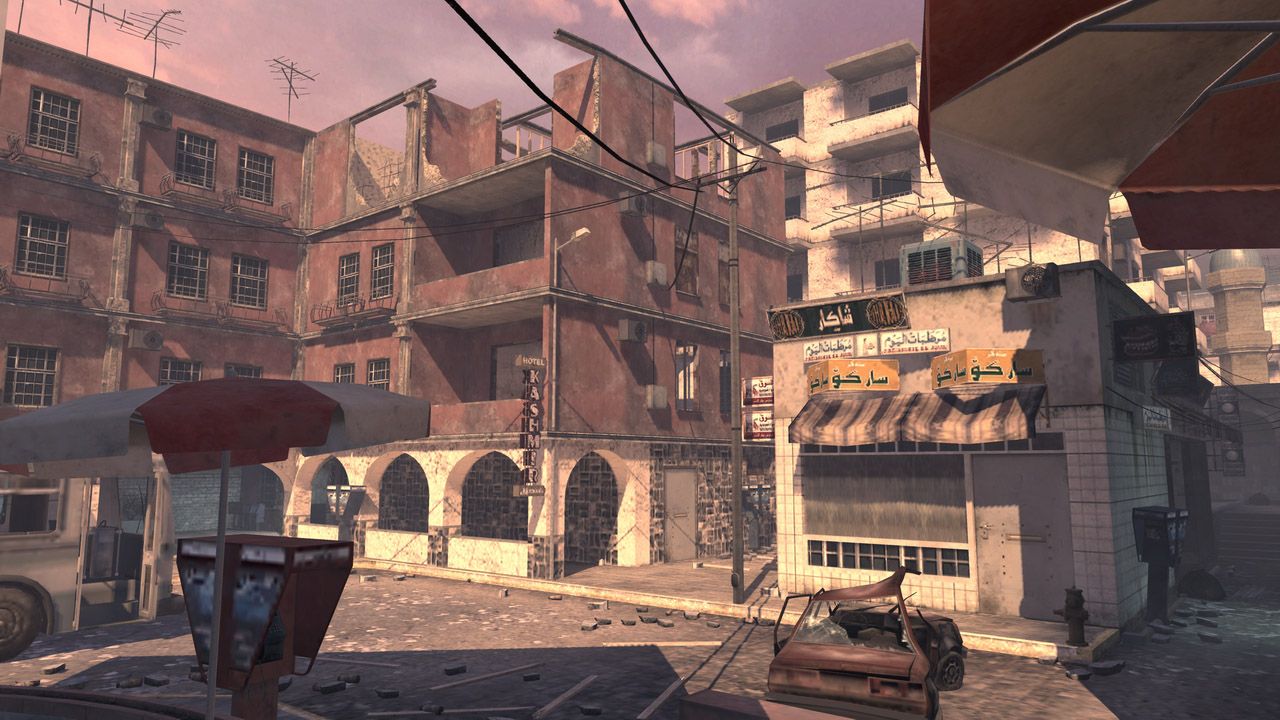
An uneasy, dark humor pervaded the hourlong talk about Muslim representation in video games at the Game Developers Conference in San Francisco on Thursday. The panel was made up of Muslims who work in the video game industry. As one panelist said, laughter is the only coping mechanism left.
Over the past two decades, Muslims have been one of the major video game villains, along with Russians and South Americans—whatever the "flavor of month" may be, according to Romana Khan Ramzan, a game design lecturer at the Glasgow Caledonian University in the United Kingdom. Popular games like Call of Duty franchise only help reinforce the mainstream stereotype that Muslims, regardless of nationality, are terrorists that need to be killed, argues Rami Ismail, a Dutch-Egyptian video game developer.
"Muslim blood is the cheapest on Earth right now," says Ismail. "American blood is the most expensive. That's all you are doing in Call of Duty: Just shoot the Arab."
The panel discussed many examples of basic mistakes and misunderstandings by the predominantly white video game developing community—a 2005 study found 85 percent of developers were white—about the Muslim world, which is composed of 1.6 billion people, whether it be how Muslim prayers are held or how a terrorist leader from the Caucasus should not have a Arabic name.
Panelists leafed through cases of the token "Good Muslim" characters, such as Faridah Malik from Deus Ex, a skilled Arab-American pilot from Dearborn, Michigan, whose Muslim faith is one of the most important facets of her background story. They argued that having one character built around their faith, rather than ethnicity, was insufficient to capture the diverse spectrum of Muslims around the world.
"Why can't we be represented by our ethnicity?" Khan Ramzan asks. "Why not by people from Tunisia or Pakistan or Morocco? People don't sit and think about what a Christian character looks like."
The panel commended some video games, most notably the first Assassin's Creed, which featured a protagonist from Syria during the Third Crusade. The 2007 game received plaudits for its eye for detail in re-creating 12th-century Jerusalem, Acre, Israel and Damascus.
But not all video games sympathetic to Muslim culture were accepted in the mainstream culture. In 2009, Konami pulled the release of Six Days in Fallujah —a military shooter game which sought to accurately re-create the Second Battle of Fallujah during the Iraq War—following a firestorm of complaints. While it has been nearly seven years, old wounds have yet to heal.
"This is a horrible thing to say, but you know what I want to see? I would like to see one time a game where the enemies are Americans," Ismail says. "I don't I have seen that. The Americans are obviously the good ones. It's always the West versus the Evil."
Ismail points out that many Middle Eastern countries, tired of the West-centric video games, have seen a boom in its domestic video game industry in recent years. Saudi Arabia's royal family has been active in funding video game developers, including one which made a racing game featuring female drivers. Iran's video game industry may see a boom thanks to the lifting of economic sanctions from the United States, allowing more money to flow into the country to support developers. Ismail notes that Egypt had one of the largest developer communities in the world in 2015.
But the United States remains the global culture hegemony, and its games will make larger ripples around the world than those from Egypt or Iran. The panel argued that there is only one solution to solving the poor Muslim representation in video games: the lack of diversity in the developer community.
"I think it comes down to diversity, over and over again," Khan Ramzan asks. "Reach out and ask us, definitely, but don't treat your local Muslim as the Islam expert."
Uncommon Knowledge
Newsweek is committed to challenging conventional wisdom and finding connections in the search for common ground.
Newsweek is committed to challenging conventional wisdom and finding connections in the search for common ground.
About the writer
Seung Lee is a San Francisco-based staff writer at Newsweek, who focuses on consumer technology. He has previously worked at the ... Read more
To read how Newsweek uses AI as a newsroom tool, Click here.








